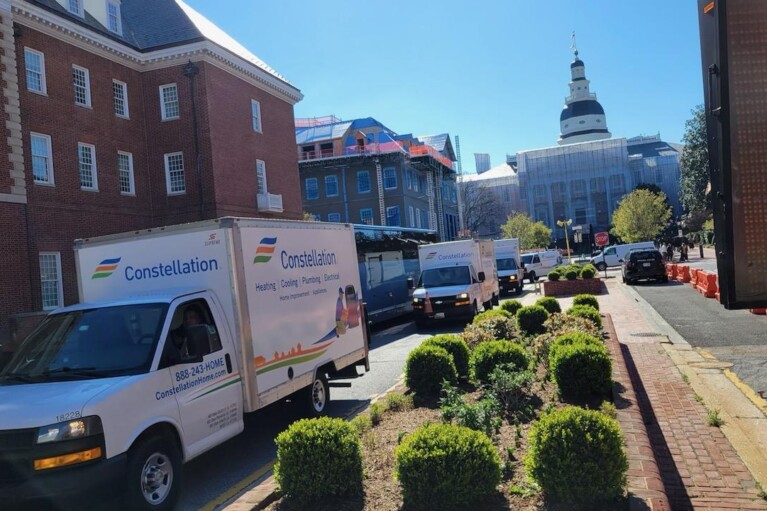Opinion: Legislature Should Support Cannabis Licensing Process That Prioritizes Minority Business Owners
By Michael Arrington and John M. Kane
The writers are, respectively, chair and vice chair of the Maryland Minority Cannabis Business Association, a new nonprofit organization. MMCBA’s mission will be to promote equal access for minority business owners by advocating for policy considerations in Annapolis and providing industry education to achieve equity for the communities most affected by the War on Drugs.
Legislative leaders have announced their interest in passing legislation to place a referendum on the ballot next year legalizing recreational cannabis. As a result, Maryland is on the precipice of a decision that could have a lasting impact on minority entrepreneurs interested in pursuing new business opportunities in the recreational cannabis industry.
It’s no secret that communities of color were disproportionately affected by the War on Drugs. According to the ACLU, one of every three Black males born today can expect to go to prison in his lifetime, as can one of every six Latino males, compared to one of every 17 white males.
While the medical cannabis industry is booming in Maryland, the communities most disproportionately and negatively affected by past drug laws are losing out.
During the 2017 medical cannabis licensing process, Maryland minority businesses were essentially shut out when the Maryland Medical Cannabis Commission awarded 15 cultivation licenses.
Guess how many went to minority ownership groups? Hint: it’s a round number.
A resulting lawsuit produced three additional licenses and an ensuing disparity study, Business Disparities in the Maryland Market Area. The study provided a strong basis in evidence for applying race- and gender-conscious remedial measures when awarding medical cannabis licenses given current disparities defined as “large, adverse and statistically significant.”
Unfortunately, despite this study, we believe minority entrepreneurs pursuing recreational cannabis licenses may face these same conditions this time around as the medical license owners will seek to be grandfathered into the recreational market. Moreover, this approach will not level the playing field given the existing licensee’s current market share and access to investment capital.
Assuming a fixed number of recreational cannabis licenses are allotted, the legislature should support an application process that initially prioritizes minority business owners instead of chasing the false promises of significant tax income from the first few years of recreational sales.
Every other state that transitioned from medical to recreational reported substantially less tax income than predicted from recreational sales. So, what’s the rush? Why not instead take the high road, no pun intended, and allow minority ownership groups the necessary time to get established?
Unfortunately, startups fail for two primary reasons: insufficient industry acumen and lack of capital.
Already today, in the far reaches of Maryland’s rural communities, there exist numerous cultivation facilities that are just waiting for the passage of recreational cannabis. These sizeable, multimillion-dollar operations will squash the ability for new entrants that are not part of “the club.”
Connecticut is one of the state’s leading the way to enact a system that supports social equity licenses ahead of current medical growers. However, they and other states have struggled with rules to prevent licenses granted based on social equity from being bought up by multistate operators. Worthy concerns but not unsolvable.
During the 2021 session, the first comprehensive legalization bill, HB 32 –The Cannabis Legalization and Regulation, Inclusion, Restoration and Rehabilitation Act of 2021, was introduced and championed by Del. Jazz Lewis. His legislation focused on racial and social justice, ended cannabis prohibition in Maryland, and replaced it with a system to tax and regulate cannabis for adults 21 and older. In addition to legalizing the possession and cultivation of cannabis for adults, it included:
- Expungement and release for past cannabis offenses;
- Established a social equity program to promote participation in the legal cannabis industry from minorities and those hardest hit by the war on cannabis;
- Distributes the bulk of tax revenue collected from legal cannabis sales to Maryland’s HBCUs;
- Provided startup funding and training for social equity businesses; and
- Served communities impacted by poverty, mass incarceration and racism.
Sen. Brian Feldman also introduced a separate bill, SB 708, on the Senate side. Neither bill advanced in the 2021 session.
We know that grandfathering current medical license holders ahead of minority entrepreneurs will prevent economic empowerment for people of color due to market saturation and limiting access to capital. We also know that if Maryland is going to pay more than lip service to the idea of ensuring diversity, inclusion and equity in a new and rapidly expanding sector, the legislature needs to ask themselves, “What’s our goal?”
Is it to generate as much tax revenue as possible or provide economic empowerment opportunities for people of color whose communities were ravished by the War on Drugs?
Unfortunately, you cannot do both.





 Creative Commons Attribution
Creative Commons Attribution